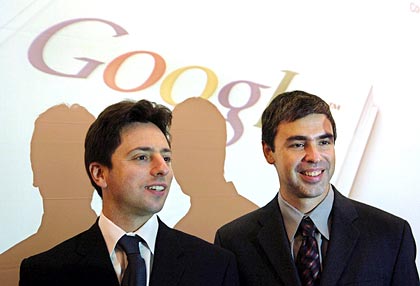The result of this success has had a phenomenal effect on its share price. Google has traded above $600 a share for a long time. When you compare this with Yahoo!, who was initially a direct competitor to Google, who currently trade at around $18 per share, or Microsoft at $31 per share, it is clear to see that Google is in a class of its own.
So it was with great expectation that investors viewed the conference earnings call of Google on April 13th 2012. Investors got what they expected in terms of earnings and the financials, but were taken aback by the surprise announcement of a stock split that effectively increased the controlling stake that Sergey Brin and Larry Page have on the company. The stock immediately traded down by 3% on the stock news.
What implication will the stock split have on the future of Google as a whole? To understand this better, let us look at the financials in the first quarter report:
1) Earnings per share of $10.08 (as against analysts’ expectation of $8.95 per share).
2) Year-year increase in US revenues to $4.9billion (a 22% increase).
3) Total revenue of $10.65billion (as against analysts’ expectations of $8.14billion)
One take on this is that the brief sell-off in Google’s stock is more like a knee-jerk response to an unexpected move by Google’s founders. Many investors and shareholders may not really mind the long term implications of leaving the voting rights in the hands of the three people who have so far guided the company to where it currently stands, as long as the company continues to do well and deliver profits and dividends to investors. You may call this an excuse for prices to pull back a little from their surge of recent times, but the fact remains that Google is an exceptionally good stock.
The stock split proposal is up for vote within the next two months. This is expected to pass, given that Google has always operated a dual class stock structure which allows decision-making and overall control of the company in the hands of its founders. This latest move is actually reinforcing the systematic leadership which has existed since the company’s inception; it is nothing new. Furthermore, the majority voting control lies in the hands of the founders anyway, so the likelihood of its not passing is virtually nil.
When the dust has settled, it is expected that Google will continue from where it left off, especially as it has begun to challenge Facebook in the social media field. The future of the stock will also be influenced by the success of Facebook launch later this year, which is not only expected to be the largest in history, but will also reflect investor demand for social network-driven stocks. Being that this is an industry where Google is making significant inroads, it may make the current value of their stock appear relatively inexpensive. So far, the current leadership has made great calls over the years, and as long as this trend continues, $700 per share Google is very likely to be on the horizon.

Comments (No)